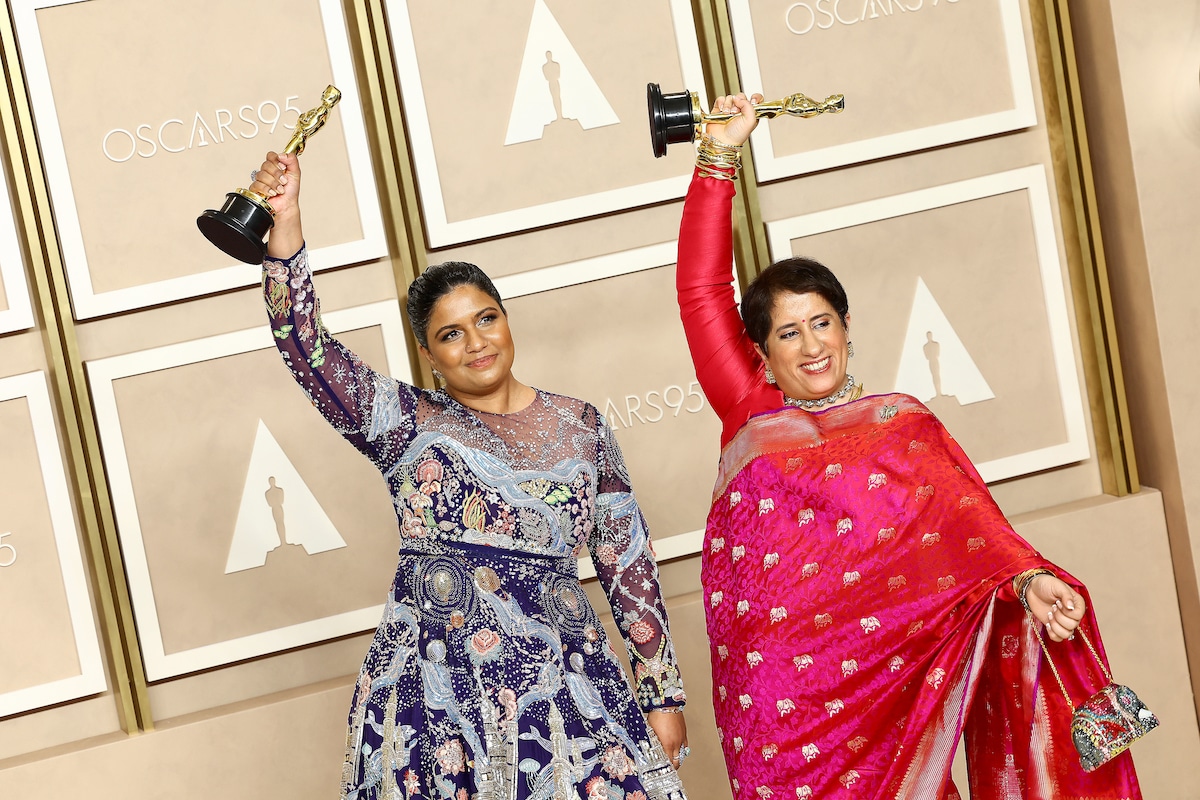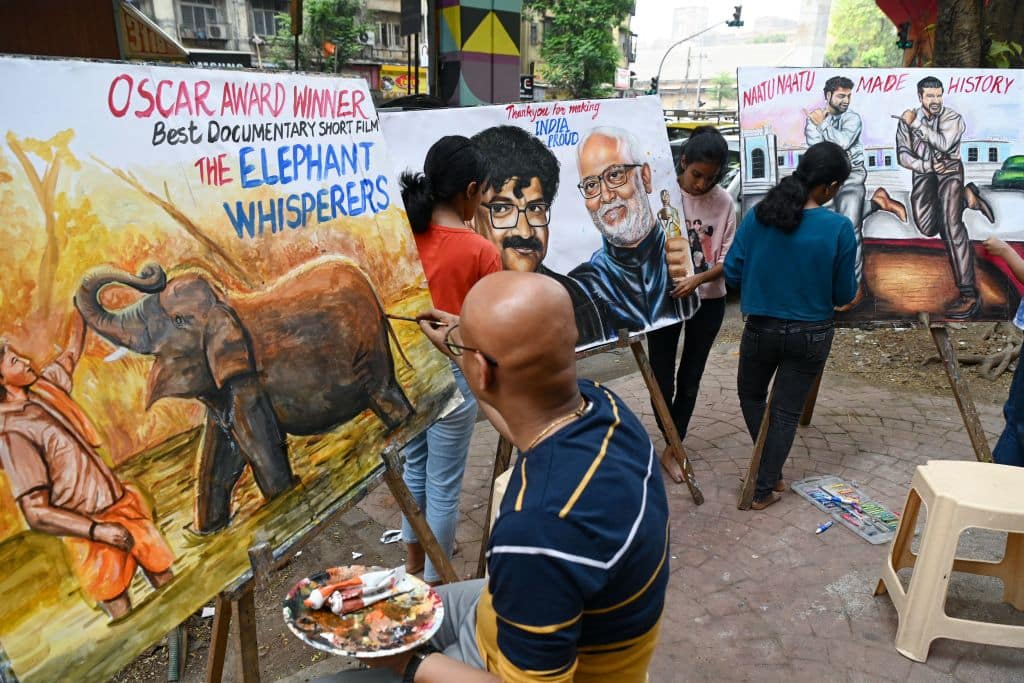True Story About Human and Elephant Friendship Wins Historic Oscar

 Why you can trust us
Why you can trust us
Founded in 2005 as an Ohio-based environmental newspaper, EcoWatch is a digital platform dedicated to publishing quality, science-based content on environmental issues, causes, and solutions.
Amidst the glitz and glamor of the Oscars Sunday night came a surprisingly earnest reminder of the importance of protecting the natural world and Indigenous rights.
This reminder came when “The Elephant Whisperers,” a moving true story about the relationship between an Indigenous Indian couple and two orphaned elephants, won the Oscar for Best Documentary Short.
“I stand here today to speak for the sacred bond between us and our natural world, for the respect of Indigenous communities and empathy towards other living beings we share space with and finally, coexistence,” the film’s director Kartiki Gonsalves said as she accepted the award.
The film, which marks Gonsalves’s directorial debut, tells the story of what happened when a family from the Tamil Nadu’s Mudumalai Tiger Reserve adopted two orphaned Asian elephants, according to The Indian Express. However, while the film is a career first for Gonsalves, her love of the natural world was instilled in her from a young age.
“My family explored streams and beaches, natural history museums and aquariums. My parents would bundle us up — my sister and I — and would take us out to state parks and camping sites,” she told NPR.
She was returning to her hometown of Ooty in southern India in October of 2017 when she saw a young elephant receiving a bath from a human caregiver, according to NPR and The Guardian. That calf was named Raghu, and he would go on to be the heart of the film.
Gonsalves began talking to one of Raghu’s caretakers named Bomman, who offered for her to spend more time with Raghu.
“This documentary was made because I fell in love with Raghu first,” Gonsalves told NPR. “The three of us would happily splash along the river, and I would spend hours scrubbing him and rubbing his tongue. He absolutely loves his tongue being rubbed. He enjoyed pulling my hair and splashing around in the water. We would stick our tongues at each other.”
The film also tells the story of Bomman and Bellie, a middle-aged couple from the Kattunayakan tribe, which has historically cared for elephants, according to The Guardian and NPR. Later in the film, they adopt another young elephant named Ammu, and Raghu has to move away to caretakers who specialize in adolescent elephants. In one scene, Ammu wipes Bellie’s tears as she cries for their missing family member, as BBC News described.
Surrounding the sweetness of the couples’ interaction for the two elephants is a sadder story about how the climate crisis is driving human and wildlife conflict. Warmer weather is drying up water in the region, which causes elephants to wander into human areas to quench their thirst. However, that quest can put them in contact with electric fences: More than 550 elephants in the area have died because of such encounters within an eight year period, according to The Guardian.
“Raghu is the living embodiment of climate change and shrinking habitats for Asian elephants. He lost his mother to an electrocution when their herd meandered into a nearby village. To me this bittersweet aspect of the story was crucial to what I wanted to say,” Gonsalves told The Guardian.
Crafting this story took a lot of work, as producer Guneet Monga told WION.
“It took a while because we had 450 hours of footage with us, lots of shots of the jungle,” she said.
That work paid off at the 95th Academy Awards in a milestone for India overall, since it is the first time the country has won an Oscar in the Documentary Short category.
“Thank you to the Academy for recognizing our film, highlighting Indigenous People and animals,” Gonsalves said during her speech.
She then thanked many people including Monga, Bomman, Bellie, her family and “my motherland, India.”
As for Bomman and Bellie, they were pleased with the win, but this was still overshadowed by the loss of their elephant son.
“[W]e are sad that Raghu is not with us now,’ Bomman said, as BBC News reported.
“The Elephant Whisperers” is currently streaming on Netflix.

Subscribe to get exclusive updates in our daily newsletter!
By signing up, you agree to the Terms of Use and Privacy Policy & to receive electronic communications from EcoWatch Media Group, which may include marketing promotions, advertisements and sponsored content.

 233k
233k  41k
41k  Subscribe
Subscribe 




